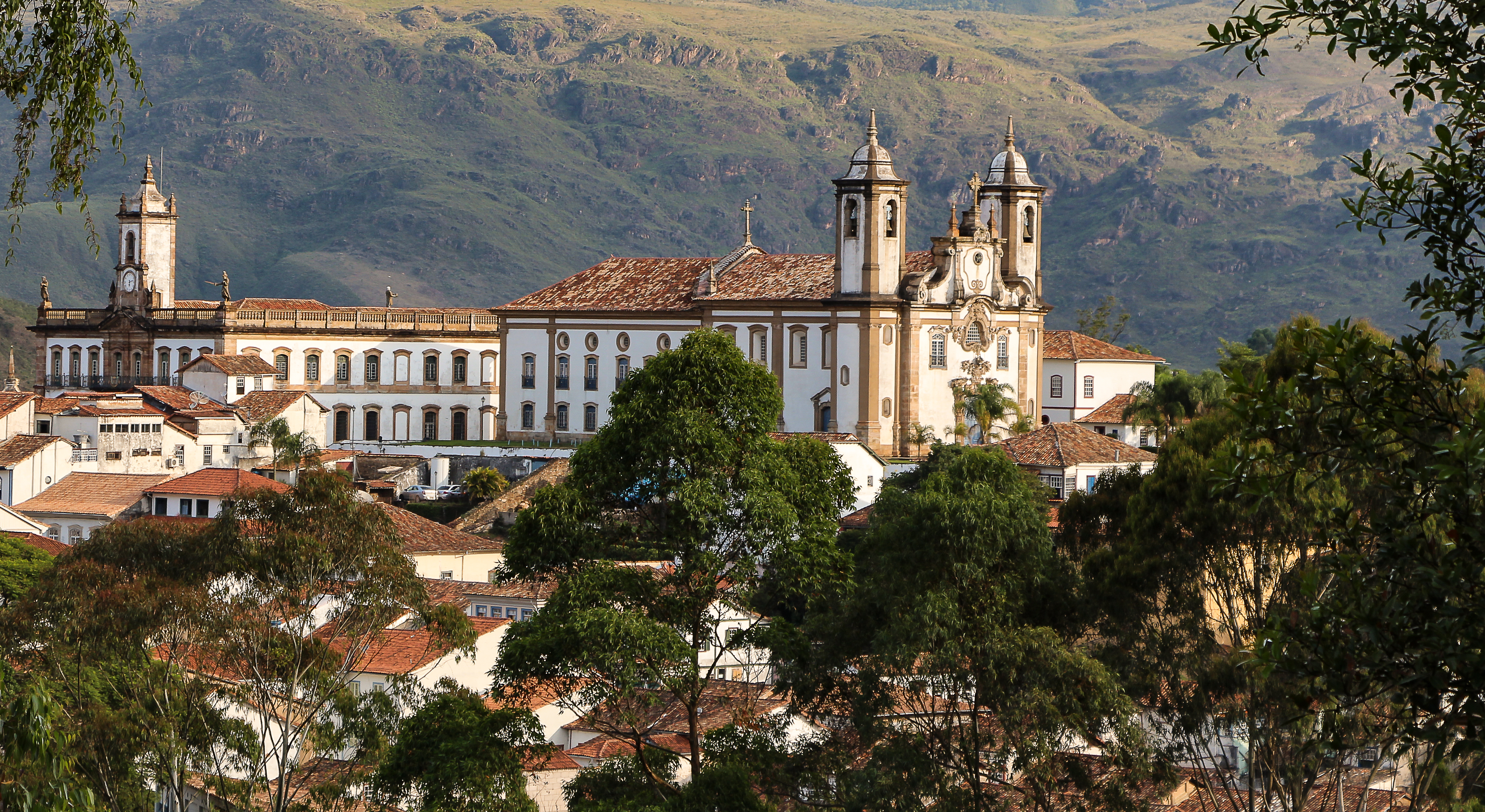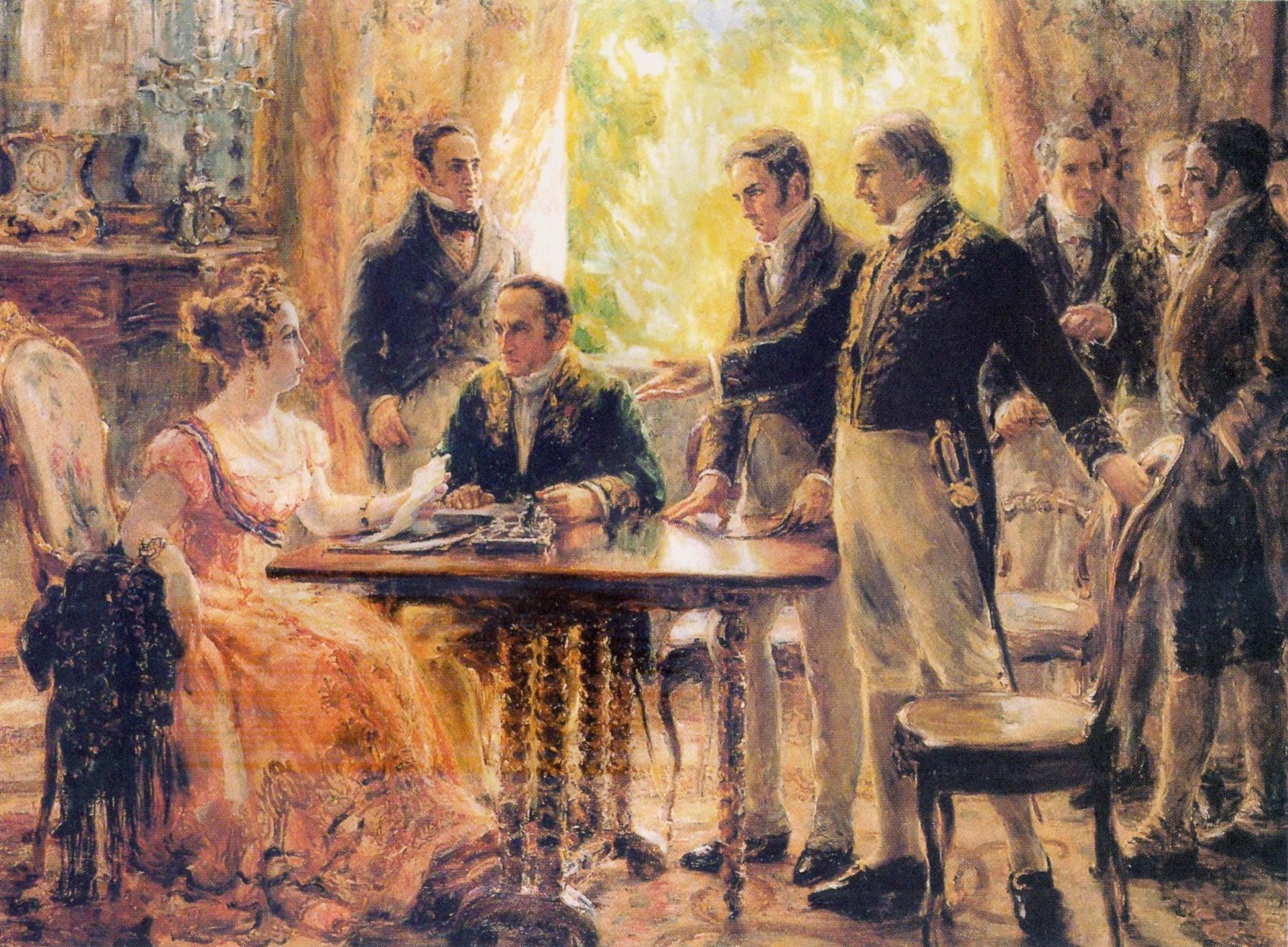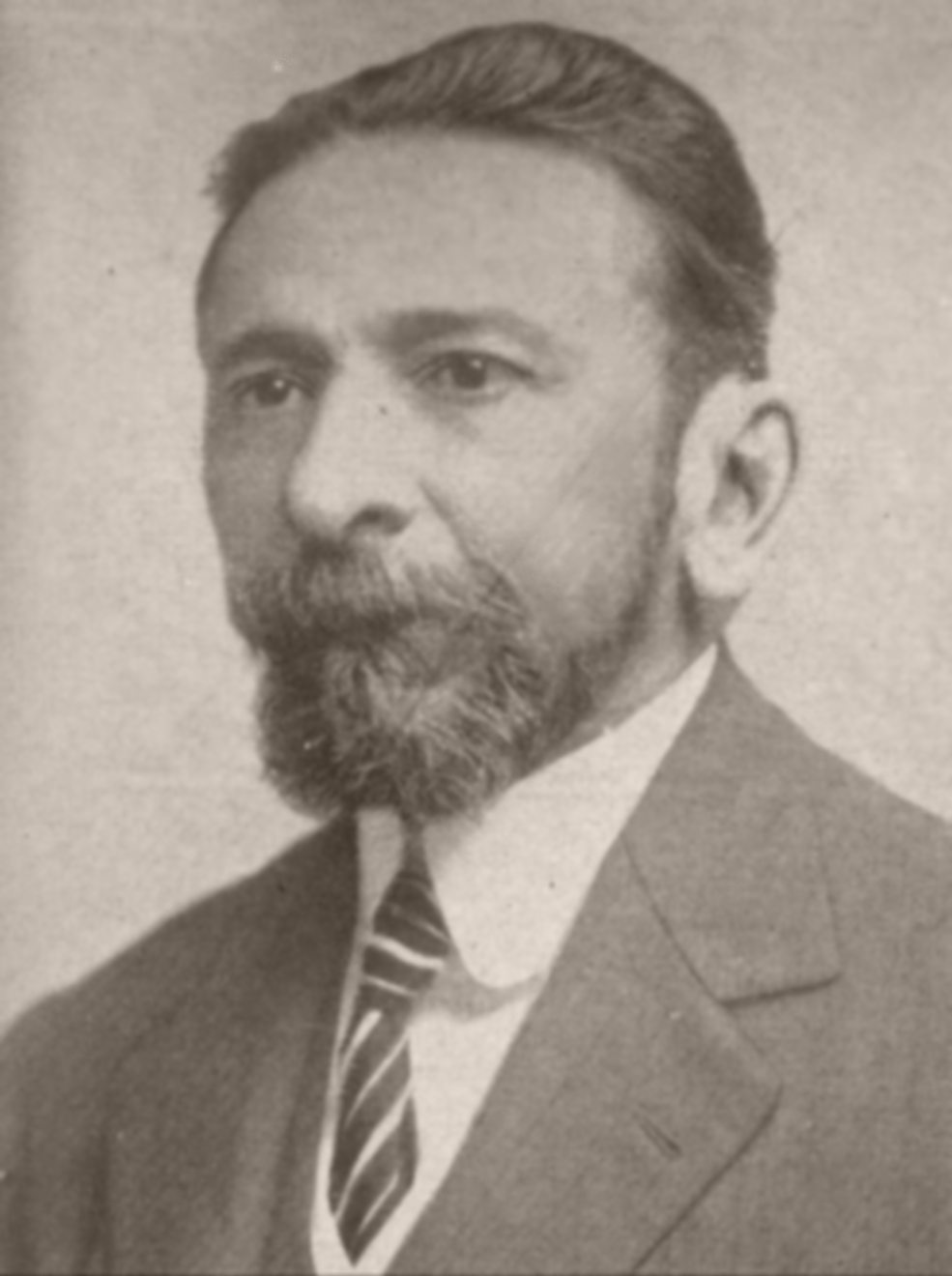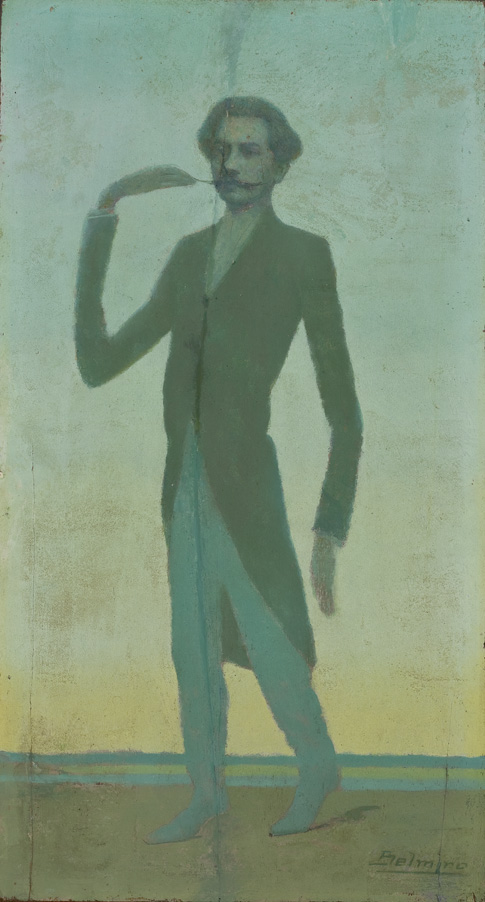|
Teófilo Dias
Teófilo Odorico Dias de Mesquita (November 8, 1854 – March 29, 1889) was a Brazilian poet, journalist and lawyer, nephew of the famous Romantic author Gonçalves Dias. He is the patron of the 36th chair of the Brazilian Academy of Letters. The literary critic Alfredo Bosi considers his 1882 work ''Fanfarras'' to have launched the Parnassian movement in Brazilian literature. Life Teófilo Dias was born in 1854, to Odorico Antônio de Mesquita and Joana Angélica Dias de Mesquita (who was the sister of poet Gonçalves Dias). His initial schooling happened in São Luís, at the Instituto de Humanidades. Moving to Rio de Janeiro, he was lodged in a convent for two years (1875–1876) and prepared to ingress at a Law course. In Rio, he met many influential people, such as Alberto de Oliveira, Artur de Oliveira, Aluísio Azevedo, Benjamin Constant Botelho de Magalhães, José do Patrocínio and Joaquim Maria Machado de Assis. In 1881, he finished the Law course at the ... [...More Info...] [...Related Items...] OR: [Wikipedia] [Google] [Baidu] |
Caxias, Maranhão
Caxias is a municipality in the state of Maranhão in the Northeast region of Brazil. It is the fifth largest city in the state, with a population of 165,525 inhabitants and an area of about 5,170 km2. The Brazilian poet Gonçalves Dias was born in Caxias. See also *List of municipalities in Maranhão This is a list of the municipalities in the state of Maranhão (MA), located in the Northeast Region of Brazil. Maranhão is divided into 217 municipalities, which are grouped into 21 microregions, which are grouped into 5 mesoregions. Se ... References Municipalities in Maranhão {{Maranhão-geo-stub ... [...More Info...] [...Related Items...] OR: [Wikipedia] [Google] [Baidu] |
Brazilian Literature
Brazilian literature is the literature written in the Portuguese language by Brazilians or in Brazil, including works written prior to the country's independence in 1822. Throughout its early years, literature from Brazil followed the literary trends of Portugal, whereas gradually shifting to a different and authentic writing style in the course of the 19th and 20th centuries, in the search for truly Brazilian themes and use of Brazilian forms. Portuguese is a Romance language and the sole official language of Brazil. Lyrically, the poet Olavo Bilac, named it " ''(...) desconhecida e obscura./ Tuba de alto clangor, lira singela,/ Que tens o trom e o silvo da procela,/ E o arrolo da saudade e da ternura!'' ", which roughly translates as "(...) unknown and obscure,/ Tuba of high blare, delicate lyre,/ That holds the frill and the hiss of the tempest/ And the singing of the saudade and of the tenderness!" Brazil's most significant literary award is the Camões Prize, which it share ... [...More Info...] [...Related Items...] OR: [Wikipedia] [Google] [Baidu] |
Martim Francisco Ribeiro De Andrada
Martim Francisco Ribeiro de Andrada (9 April 1775 – 23 February 1844) was a Brazilian politician who played a leading role in the declaration of Brazil's independence and in the government during the years that followed. He was twice Minister of Finance. Early years Martim Francisco Ribeiro de Andrada was born in Santos, São Paulo on 9 April 1775. At the time Santos was just a village. His parents were Colonel José Bonifácio Ribeiro de Andrada and Maria Bárbara da Silva. His brothers were Antônio Carlos and José Bonifácio de Andrada. He attended the University of Coimbra in Portugal, where he received degrees in philosophy (1797) and mathematics (1798). He earned a PhD in Natural Sciences. At the university he worked with the friar José Mariano de Conceição Vellozo, a naturalist, in translating works on mineralogy and agriculture. After returning to Brazil, Ribeiro de Andrada was appointed inspector general of mines in São Paulo state. He traveled extensively in S� ... [...More Info...] [...Related Items...] OR: [Wikipedia] [Google] [Baidu] |
French Language
French ( or ) is a Romance language of the Indo-European family. It descended from the Vulgar Latin of the Roman Empire, as did all Romance languages. French evolved from Gallo-Romance, the Latin spoken in Gaul, and more specifically in Northern Gaul. Its closest relatives are the other langues d'oïl—languages historically spoken in northern France and in southern Belgium, which French ( Francien) largely supplanted. French was also influenced by native Celtic languages of Northern Roman Gaul like Gallia Belgica and by the ( Germanic) Frankish language of the post-Roman Frankish invaders. Today, owing to France's past overseas expansion, there are numerous French-based creole languages, most notably Haitian Creole. A French-speaking person or nation may be referred to as Francophone in both English and French. French is an official language in 29 countries across multiple continents, most of which are members of the ''Organisation internationale de la Francophonie'' ... [...More Info...] [...Related Items...] OR: [Wikipedia] [Google] [Baidu] |
José Veríssimo
José Veríssimo Dias de Matos (8 April 1857 – 2 December 1916) was a writer, educator, journalist, literary critic, and founding member of the Brazilian Academy of Letters. Biography José Veríssimo was born in Óbidos, Pará, the son of José Veríssimo de Matos and Ana Flora Dias de Matos. His early school-days were spent in Manaus and Belém. In 1869, he was sent to Rio de Janeiro to continue his studies, but had to return to Pará due to poor health. He then devoted himself zealously to journalism and teaching. In 1891, Veríssimo returned to Rio de Janeiro and took a position as professor in Colégio Pedro II Colégio Pedro II is a traditional federal public school, located in the state of Rio de Janeiro, Brazil. It is the third oldest active college in the country, after Ginásio Pernambucano and Atheneu Norte-Riograndense. The school was created .... For some time (1895–1899), concurrently with his scholarly labors, he edited the famous ''Revista Brasileira''. ... [...More Info...] [...Related Items...] OR: [Wikipedia] [Google] [Baidu] |
Joaquim Maria Machado De Assis
Joaquim Maria Machado de Assis (), often known by his surnames as Machado de Assis, ''Machado,'' or ''Bruxo do Cosme Velho''Vainfas, p. 505. (21 June 1839 – 29 September 1908), was a pioneer Brazilian novelist, poet, playwright and short story writer, widely regarded as the greatest writer of Brazilian literature. Nevertheless, Assis did not achieve widespread popularity outside Brazil during his lifetime. In 1897 he founded and became the first President of the Brazilian Academy of Letters. He was multilingual, having taught himself French, English, German and Greek in later life. Born in Morro do Livramento, Rio de Janeiro from a poor family, he was the grandson of freed slaves in a country where slavery would not be fully abolished until 49 years later. He barely studied in public schools and never attended university. With only his own intellect to rely on, and largely self-taught, he struggled to rise socially. To do so, he took several public positions, passing through ... [...More Info...] [...Related Items...] OR: [Wikipedia] [Google] [Baidu] |
José Do Patrocínio
José Carlos do Patrocínio (October 9, 1854 – January 29, 1905) was a Brazilian writer, journalist, activist, orator and pharmacist. He was among the most well-known proponents of the abolition of slavery in Brazil, and known as "O Tigre da Abolição" (''The Tiger of Abolition''). He founded and occupied the 21st chair of the Brazilian Academy of Letters from 1897 until his death in 1905. Life José do Patrocínio was born in the city of Campos dos Goytacazes, to João Carlos Monteiro, a vicar and politician, and Justina do Espírito Santo, a young freed slave from Elmina, Ghana. João Carlos did not legally recognize his son, but he did partially subsidize his education in pharmacy school. After finishing school, Do Patrocínio went to Rio de Janeiro, where he served as a bricklayer during the construction of the Santa Casa da Misericórdia. He became interested in Medicine and began studying at the Faculdade de Medicina da Universidade Federal do Rio de Janeiro, graduating ... [...More Info...] [...Related Items...] OR: [Wikipedia] [Google] [Baidu] |
Benjamin Constant Botelho De Magalhães
Benjamin Constant Botelho de Magalhães (18 October 1836 – 22 January 1891) was a Brazilian military officer and political thinker. Primarily a Positivism, positivist, influenced heavily by Auguste Comte, he was the founder of the positivist movement in Brazil (Sociedade Positivista do Brasil, ''Brazilian Positivist Society''), and later this led to his Republicanism, republican views. He left the Brazilian Positivist Society because of internal disagreements, but remained an ardent pupil of Comte until the end of his life. Benjamin Constant was born in Niterói. He had a difficult childhood and attempted suicide at the age of 12. He served in the Paraguayan War, and had a large family. He felt underpaid and unhappy as a soldier. An intellectual at heart, he was a great supporter of Comte's Religion of Humanity. His republican views led him to found the Clube Militar (or Military Club), with Deodoro da Fonseca, in May 1887. It was based in the Praia Vermelha Military School, an ... [...More Info...] [...Related Items...] OR: [Wikipedia] [Google] [Baidu] |
Aluísio Azevedo
Aluísio Tancredo Gonçalves de Azevedo (; 14 April 1857 – 21 January 1913) was a Brazilian novelist, caricaturist, diplomat, playwright and short story writer. Initially a Romantic writer, he would later adhere to the Naturalist movement. He introduced the Naturalist movement in Brazil with the novel '' O Mulato'', in 1881. He founded and occupied the 4th chair of the Brazilian Academy of Letters from 1897 until his death in 1913. Biography Azevedo was born in São Luís, to David Gonçalves de Azevedo (the Portuguese vice-consul in Brazil) and Emília Amália Pinto de Magalhães. He was the younger brother of the famous playwright Artur Azevedo. As a child, Aluísio would work as a traveling salesman. Since then, he loved painting and drawing, and would move to Rio de Janeiro in 1876 (where his brother Artur was living already), to study at the Escola Nacional de Belas Artes. After graduating, he drew caricatures for journals such as ''O Fígaro'', ''O Mequetrefe'', ''Z ... [...More Info...] [...Related Items...] OR: [Wikipedia] [Google] [Baidu] |
Artur De Oliveira
Artur de Oliveira was a Brazilian writer, teacher and poet. He was born in Porto Alegre on August 11, 1851, and died in Rio de Janeiro, RJ, on August 21, 1882. He was the patron of chair no. 3 at the Brazilian Academy of Letters, by choice of Filinto de Almeida. He was the son of João Domingos de Oliveira and Maria Angélica de Oliveira. After primary school in his hometown, he arrived in Rio de Janeiro at the age of 16, at the end of 1867. From Rio de Janeiro he traveled to Minas Gerais, in order to enroll in the famous Caraça school. Leaving the school of his own free will, but with an accusation of indiscipline, he went to Pernambuco, where he tried to study at the Faculty of Law of Recife, in 1870, but, failing mathematics, he gave up trying again. He then went to Europe. On August 4, 1870, he wrote to his father describing his first observations of Paris, including the Franco-Prussian War, which was almost over then. From Paris he traveled to Berlin, however, returning to ... [...More Info...] [...Related Items...] OR: [Wikipedia] [Google] [Baidu] |
Alberto De Oliveira
Antônio Mariano de Oliveira (April 28, 1857 – January 19, 1937) was a Brazilian poet, pharmacist and professor. He is better known by his pen name Alberto de Oliveira. Alongside Olavo Bilac and Raimundo Correia Raimundo da Mota de Azevedo Correia (May 13, 1859 – September 13, 1911) was a Brazilian Parnassian poet, judge and magistrate. Alongside Alberto de Oliveira and Olavo Bilac, he was a member of the "Parnassian Triad". He founded and occupied th ..., he comprised the Brazilian " Parnassian Triad". He founded and occupied the 8th chair of the Brazilian Academy of Letters from 1897 until his death in 1937. References External links Jornal de Poesia bio (In Portuguese) [...More Info...] [...Related Items...] OR: [Wikipedia] [Google] [Baidu] |







